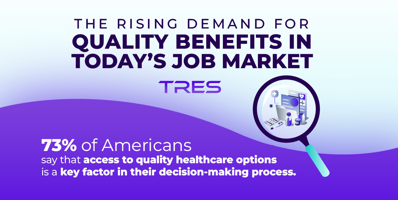
The Importance of Early Treatment and Preventive Care

Health is often a priority that gets pushed aside until a problem arises. However, many organizations shine a brighter light on the importance of preventive health and screenings during October, for breast cancer awareness month, and November, for men’s health awareness month.
Research shows that early treatment and preventive care are the most effective ways to stay healthy and avoid more serious, chronic conditions. Taking a proactive approach to healthcare can lead to a longer life. But why are early intervention and preventive measures so crucial?
What Is Preventive Care?
Preventive care focuses on health practices designed to prevent diseases or detect them early before they turn into a serious condition. These practices can include regular check-ups, screenings, immunizations, and lifestyle changes that reduce the risk of illness. Preventive care is aimed at maintaining wellness and avoiding potential risks.
Why Is Early Treatment Crucial?
Prevention is the first step, and a critical one, but once a condition is detected, early treatment can make a world of difference in how effectively health issues are addressed. Catching a disease or health problem in its early stages can lead to better outcomes, quicker recovery, and fewer long-term complications.
Preventive Care for Women
For women, preventive care is especially important at different stages of life. For example, between the ages of 21-65, pap smears are recommended every three years to help detect signs of cervical cancer.
Mammograms are typically not recommended for women until they are 40 or older. However, these screenings hold the key to detecting early signs of breast cancer, which is the second most leading cause of death in the United States and the highest treatment cost of any cancer.
In the United States 1 in 3 people die from heart disease or stroke every year. And heart health, although more often overlooked for women, should be regularly monitored including cholesterol levels, blood pressure, and diet and exercise changes, which can help detect early signs of heart disease.
Mental health is another potentially neglected aspect of preventive care but one that holds a lot of weight, especially for women, as they are more likely to experience anxiety and depression. Addressing these concerns early can significantly improve quality of life. Therapy, lifestyle changes, and even preventive medications can play a critical role in early intervention.
Preventive Care for Men
Men often delay seeking medical advice, even when signs of potential health problems arise. Prostate cancer is one of the most common cancers among men, and early detection is crucial. Men over 50 (or earlier if there’s a family history), should discuss with their healthcare provider whether a prostate-specific antigen (PSA) test is necessary.
Although less talked about, testicular cancer can occur at a much younger age and is typically prevalent in men between 15 and 35 years of age. Regular self-exams and discussions about any changes with a healthcare provider is essential.
Heart health is another major concern for men, and screenings for cholesterol, blood pressure, and blood sugar can be used to help identify issues early. Adopting a healthy diet, exercising regularly, and managing stress are critical preventive measures.
Speaking of stress, mental health among men should also take precedence when it comes to maintaining proper preventive health, yet men are 40% less likely to attend counselling services compared to women. Research shows men are more likely to turn to unhealthy coping mechanisms, which is why early recognition, and discussion, of these issues can be key to prevent more serious health concerns.
Proactive Health Can Lead to a Longer Life
Investing in preventive care and seeking early treatment are keys to unlocking a long, healthy life. For both men and women, obtaining regular screenings, adopting healthy habits, and addressing concerns early can prevent many diseases and complications. While everyone’s health journey is different, the foundation of a proactive, health-conscious lifestyle can significantly improve the quality of life in the long term.
Sources:
National Center for Health Statistics. Mental Health Treatment Among Adults: United States, 2019. www.cdc.gov.
Thriveworks. Women are more likely to admit they need help and to seek mental health services. www.thriveworks.com.
NCCDPHP. Health and Economic Benefits of Breast Cancer Interventions. www.cdc.gov.
CDC Chronic Disease. Fast Facts: Health and Economic Costs of Chronic Conditions. www.cdc.gov.


